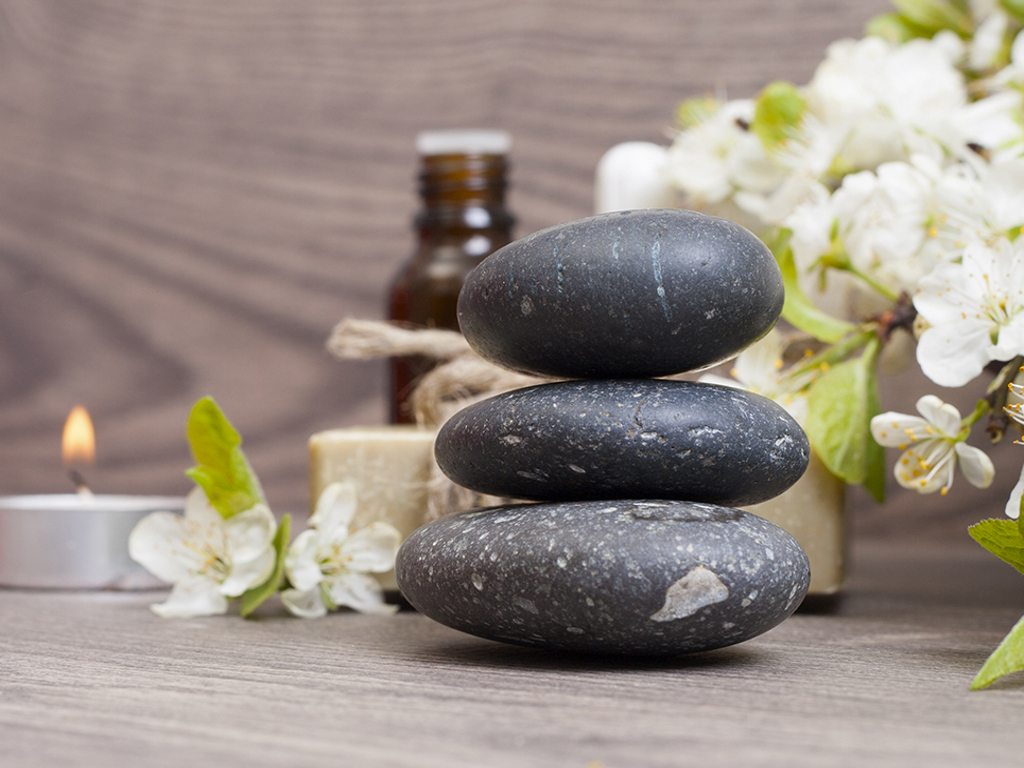Serbian customers read product declarations – Quality and turning to natural care key assets of local cosmetics producers
Creams, ointments and perfumes are a weak spot for many of us. Global cosmetics companies have been investing considerable funds in research and development in the past year, and the biggest among them compete with each other by investing millions in adapting their products to various skin types. Recognition, constant innovation and big budget ads are a sure way to reach the customers.
The question, however, is which of these products are present in the local market. There are allegations about two different categories of products, those for the western EU market and those for eastern European countries, Serbia among them, and these rumors are getting more frequent, leading to ever increasing distrust among local consumers. Could this be an opportunity for the local cosmetics industry? Local producers use quality to persevere in the competition with multinational brands. Along with enhancing the production and following the trends, this is their ticket to foreign markets as well.
According to the Association for Chemical, Rubber and Non-metal Industry of the Chamber of Commerce of Serbia, a growth of the number of companies in the field of perfume and toiletry production has been recorded in the past several years in the territory of Serbia. They are characterized, as they say, by quality products, being up-to-date with technological innovations and investments in production equipment, whereas the basic raw materials are mostly imported.
A small group of medium companies, which offer hygienic and basic skin care products, are the most active participants in the cosmetics industry. There are also numerous small producers, so-called domestic workshops, primarily oriented towards producing natural, organic and specific cosmetics.
Paying attention to consumers' desires
The unequal marketing position of local products compared to multinational brands, which used to be the main problem for years, seems to be behind the local producers. As they claim, the situation has largely changed since a decade ago, when imported products were invariably considered superior.
YUCO-Hemija, which produces Multiactiv cosmetics products, points out for our portal that increasingly more customers choose products for the essential quality they recognize in them, rather than based on the brand, the country of origin, advertisements, influencers' recommendations etc.
– The Serbian market is still poor and in transition, but consumers are much wiser and more educated nowadays. Our competition consists of strong, aggressive multinational brands, but such an environment has stimulated us to start implementing the special approach of offering higher product value to consumers – says Dragana Grujic, commercial director in YUCO-Hemija.
The question, however, is which of these products are present in the local market. There are allegations about two different categories of products, those for the western EU market and those for eastern European countries, Serbia among them, and these rumors are getting more frequent, leading to ever increasing distrust among local consumers. Could this be an opportunity for the local cosmetics industry? Local producers use quality to persevere in the competition with multinational brands. Along with enhancing the production and following the trends, this is their ticket to foreign markets as well.
According to the Association for Chemical, Rubber and Non-metal Industry of the Chamber of Commerce of Serbia, a growth of the number of companies in the field of perfume and toiletry production has been recorded in the past several years in the territory of Serbia. They are characterized, as they say, by quality products, being up-to-date with technological innovations and investments in production equipment, whereas the basic raw materials are mostly imported.
A small group of medium companies, which offer hygienic and basic skin care products, are the most active participants in the cosmetics industry. There are also numerous small producers, so-called domestic workshops, primarily oriented towards producing natural, organic and specific cosmetics.
Paying attention to consumers' desires
The unequal marketing position of local products compared to multinational brands, which used to be the main problem for years, seems to be behind the local producers. As they claim, the situation has largely changed since a decade ago, when imported products were invariably considered superior.
YUCO-Hemija, which produces Multiactiv cosmetics products, points out for our portal that increasingly more customers choose products for the essential quality they recognize in them, rather than based on the brand, the country of origin, advertisements, influencers' recommendations etc.
– The Serbian market is still poor and in transition, but consumers are much wiser and more educated nowadays. Our competition consists of strong, aggressive multinational brands, but such an environment has stimulated us to start implementing the special approach of offering higher product value to consumers – says Dragana Grujic, commercial director in YUCO-Hemija.
As our interviewee explains, Serbia is marked by a trend characteristic of the markets in which the effects of the crisis are quite prominent. Consumption has shifted to low-price products, the products from the most expensive category have seen a slight growth in sales, whereas the sale of other products is dropping. Those producers who pay close attention to signals from the market and who are ready to act quickly and efficiently and adapt to changes will persevere.
– YUCO-Hemija has been implementing this strategy for 28 years, which has resulted in a growth of turnover year after year, and, considering that this is a relatively small market and that there are numerous adverse business conditions in Serbia, we see export as a big opportunity. In the past period, we have been investing a lot in enhancing the production, automating the processes and expanding the capacities, and the facility for the production of cosmetics products now features 300 tons of installed monthly capacities. This has made us much more competitive and facilitated our access to big markets, where the most important thing is for suppliers to be able to continually deliver large quantities of a product. We are currently producing more than 150 skin care items in our facility in Backi Jarak. Aside from Serbia, the products are present in Montenegro, Bosnia and Herzegovina, Macedonia, and are also available in Turkey, Russia and certain African countries.
– We see potential for further development in following and implementing global trends, and, in the cosmetics industry, this entails using natural and organic products. The so-called “free” products, which tend to eschew all the raw materials that could potentially cause allergies or irritation, are increasingly more popular. We are accordingly trying to replace parabens, mineral oils, coloring and similar products. Furthermore, it is believed that, in the future, due to multiple obligations and lack of time, increasingly more people will be looking for instant products, providing visible results in a manner of seconds.
Investing in natural care is also an opportunity for smaller players in the market. The small Belgrade shop Sabi Handmade confirms this. Two sisters started the business as a hobby, and their offer now includes 30 products. The products are nearly entirely handmade and inspired by nature, which guarantees success with consumers able to recognize a personal stamp in each product.
– Consumers in Serbia are quite well informed and aware of what they apply to the skin. They read declarations and look for products that are as natural as possible. Seeing how the market has been flooded with natural cosmetics lately, earning consumers' trust takes some time. Perseverance, continual quality and expansion of sales network are crucial – Jelena Hajdukovic says for our portal.
– YUCO-Hemija has been implementing this strategy for 28 years, which has resulted in a growth of turnover year after year, and, considering that this is a relatively small market and that there are numerous adverse business conditions in Serbia, we see export as a big opportunity. In the past period, we have been investing a lot in enhancing the production, automating the processes and expanding the capacities, and the facility for the production of cosmetics products now features 300 tons of installed monthly capacities. This has made us much more competitive and facilitated our access to big markets, where the most important thing is for suppliers to be able to continually deliver large quantities of a product. We are currently producing more than 150 skin care items in our facility in Backi Jarak. Aside from Serbia, the products are present in Montenegro, Bosnia and Herzegovina, Macedonia, and are also available in Turkey, Russia and certain African countries.
– We see potential for further development in following and implementing global trends, and, in the cosmetics industry, this entails using natural and organic products. The so-called “free” products, which tend to eschew all the raw materials that could potentially cause allergies or irritation, are increasingly more popular. We are accordingly trying to replace parabens, mineral oils, coloring and similar products. Furthermore, it is believed that, in the future, due to multiple obligations and lack of time, increasingly more people will be looking for instant products, providing visible results in a manner of seconds.
Investing in natural care is also an opportunity for smaller players in the market. The small Belgrade shop Sabi Handmade confirms this. Two sisters started the business as a hobby, and their offer now includes 30 products. The products are nearly entirely handmade and inspired by nature, which guarantees success with consumers able to recognize a personal stamp in each product.
– Consumers in Serbia are quite well informed and aware of what they apply to the skin. They read declarations and look for products that are as natural as possible. Seeing how the market has been flooded with natural cosmetics lately, earning consumers' trust takes some time. Perseverance, continual quality and expansion of sales network are crucial – Jelena Hajdukovic says for our portal.
The advantage of this kind of production is a closer relation with the customer and a chance to meet their needs more directly. This workshop has therefore included natural face and body treatment in its offer, providing, in addition to Sabi Handmade products, prepared vegetable packs, fresh masks with organic avocado, honey, clay...
Producing for others
In addition to being up-to-date with achievements in cosmetology and enhancing the existing products, the cost-effectiveness of investments by local producers increases with a growth of production. For companies which have the capacity to do so, producing for others is an additional source of income.
Having completed the automation of processes, YUCO-Hemija increased its competitiveness, leading to several very important contracts in the segment of service production for big commercial chains (Delhaize, Metro Cash & Carry Croatia, Univerexport, Dr Colic Cosmetics etc.).
– We have considerably increased the degree of utilization of our capacities and strengthened our positions in procuring raw and processed materials. All this has led to ours having a growth of turnover by over 20% in the first half of 2017, and we believe that the trend will continue in the coming months.
The way the product looks (packaging, label, box) has a big role in making a brand recognizable.
– Our experience shows that this is the key factor in attracting customers. It is only then that marketing follows, and once they try the product and make sure of its quality, they become loyal customers, which is, in fact, the best kind of advertisement – they say at Sabi Handmade.
Figures
According to the Statistical Office of the Republic of Serbia, in 2016, there were:
– 79 companies producing perfumes and toiletries;
– 709 employees and RSD 2.8 billion worth of production;
– 5,868,172 kilograms of products manufactured;
– USD 46.5 million worth of exports of ethereal oils, cosmetics and toiletries;
– around USD 192 million worth of imports.
As the CCIS points out for our portal, some of the problems experienced by local cosmetics producers are receivables due in the country and the region, the fact that the CEFTA countries need to prove the origin of the goods when exporting and the fact that people from this field also experience difficulties related to the current legislation and the preparation of the regulations on product health safety.
A free flow of cosmetics products in the EU market is allowed only if they meet the requirements defined in the Regulation 1223/2002, relating to cosmetics products, whereas the National Program for Adoption of the Acquis (NPAA) says that the final deadline for full harmonization, transpositions and implementation is December 2018.
The CCIS cites as the most important companies in this field the following: AURA, Yuglob, DCP-Hemigal, Stevan Still, Lomax Company, Crystal Derma, All Me...
Ivana Bezarevic
Producing for others
In addition to being up-to-date with achievements in cosmetology and enhancing the existing products, the cost-effectiveness of investments by local producers increases with a growth of production. For companies which have the capacity to do so, producing for others is an additional source of income.
Having completed the automation of processes, YUCO-Hemija increased its competitiveness, leading to several very important contracts in the segment of service production for big commercial chains (Delhaize, Metro Cash & Carry Croatia, Univerexport, Dr Colic Cosmetics etc.).
– We have considerably increased the degree of utilization of our capacities and strengthened our positions in procuring raw and processed materials. All this has led to ours having a growth of turnover by over 20% in the first half of 2017, and we believe that the trend will continue in the coming months.
The way the product looks (packaging, label, box) has a big role in making a brand recognizable.
– Our experience shows that this is the key factor in attracting customers. It is only then that marketing follows, and once they try the product and make sure of its quality, they become loyal customers, which is, in fact, the best kind of advertisement – they say at Sabi Handmade.
Figures
According to the Statistical Office of the Republic of Serbia, in 2016, there were:
– 79 companies producing perfumes and toiletries;
– 709 employees and RSD 2.8 billion worth of production;
– 5,868,172 kilograms of products manufactured;
– USD 46.5 million worth of exports of ethereal oils, cosmetics and toiletries;
– around USD 192 million worth of imports.
As the CCIS points out for our portal, some of the problems experienced by local cosmetics producers are receivables due in the country and the region, the fact that the CEFTA countries need to prove the origin of the goods when exporting and the fact that people from this field also experience difficulties related to the current legislation and the preparation of the regulations on product health safety.
A free flow of cosmetics products in the EU market is allowed only if they meet the requirements defined in the Regulation 1223/2002, relating to cosmetics products, whereas the National Program for Adoption of the Acquis (NPAA) says that the final deadline for full harmonization, transpositions and implementation is December 2018.
The CCIS cites as the most important companies in this field the following: AURA, Yuglob, DCP-Hemigal, Stevan Still, Lomax Company, Crystal Derma, All Me...
Ivana Bezarevic
Companies:
Privredna komora Srbije
Udruženje za hemijsku gumarsku industriju i industriju nemetala Privredne komore Srbije
Republički zavod za statistiku
Yuco hemija Bački Jarak
Sabi Handmade Kajtasovo
Cefta Secretariat Brussels
Aura d.o.o. Niš
Yuglob d.o.o. Beograd
DCP Hemigal d.o.o. Leskovac
Stevan Still d.o.o. Beograd
Lomax-company Subotica
Crystal Derma d.o.o. Beograd
Nevena & all me cosmetics Leskovac
Tags:
Share:






Only logged-in users can comment.


 Izdanje Srbija
Izdanje Srbija Serbia Edition
Serbia Edition Serbische Ausgabe
Serbische Ausgabe Izdanje BiH
Izdanje BiH Izdanje Crna Gora
Izdanje Crna Gora









 LinkedIn
LinkedIn Copy link
Copy link




